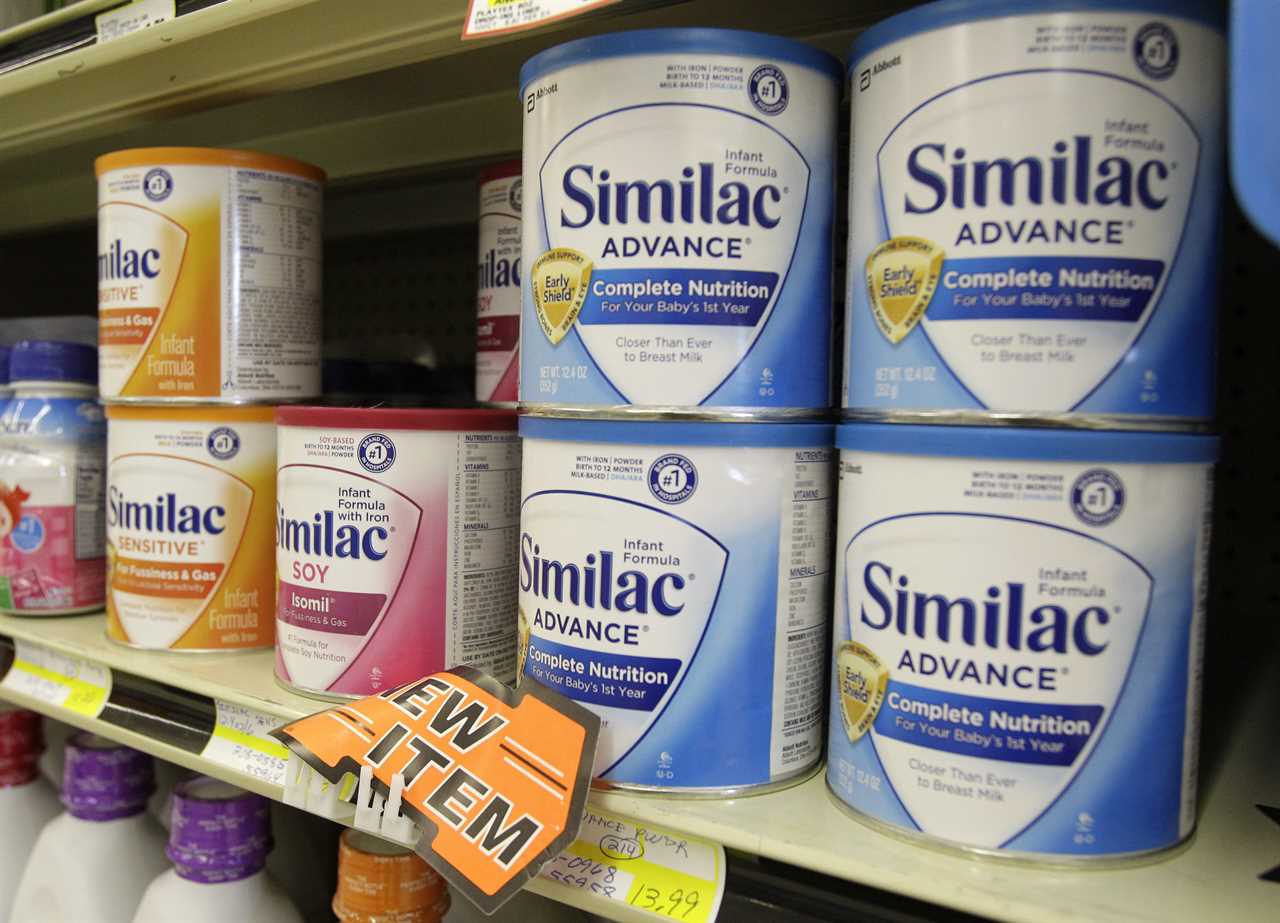
The FDA first received a report of a foodborne illness suspected to be linked to infant formula in September — four months before issuing a recall of three major brands this week after four babies were hospitalized and one died, according to a state agency.
The sweeping recall on Thursday of Similac, Alimentum and EleCare — amid a widespread shortage of infant formula on store shelves — comes after reports of illnesses came to FDA and the Centers for Disease Control and Prevention between September and December. The Minnesota Department of Health investigated a case of an infant who was sickened by Cronobacter sakazakii in September 2021, the state agency told POLITICO.
State health officials in Minnesota — a state known for its keen ability to crack foodborne illness investigations — knew that the infant had consumed powdered formula produced at an Abbott Nutrition facility in Sturgis, Mich., and shared this information with FDA and CDC in September, the agency said. FDA inspectors later found Cronobacter sakazakii at the plant.
The FDA did not respond to questions about its timeline. The agency has shared details on which lots of formula have been recalled here. The CDC did not immediately respond to a request for comment on the length of the investigation timeline.
The Minnesota baby who got sick in September survived but was hospitalized for 22 days, the state told POLITICO. Cronobacter sakazakii is a rare but serious foodborne pathogen that can cause “severe, life-threatening infections” including sepsis and meningitis as well as bowel damage, according to FDA.
Pinpointing the source of foodborne outbreaks is extremely difficult because most people eat a wide variety of foods and do not remember exactly what they ate days or weeks after the fact. But foodborne illnesses in infants are much simpler to solve. Babies typically are consuming one source of nutrition: breast milk or infant formula, or in some cases both.
“It often takes time to gather enough information to put the pieces of a puzzle together — or at least enough pieces to make clear the actions needed to protect public health,” said Doug Schultz, a spokesperson for the Minnesota Department of Health, explaining why one illness might not spark a recall. State agencies can’t institute national recalls; only FDA has that power.
“As part of Minnesota’s investigation of its case, exposure information was collected, including information about the formula given to the infant (lot numbers etc),” Schultz said. “This information was shared with CDC and FDA.”
Two more reports of Cronobacter sakazakii happened some time between September and December, according to FDA, though the agency did not respond to questions about when exactly it received them. The agency also received a complaint about a Salmonella Newport illness. All four infants who were hospitalized were reported to have consumed powdered formula from the Sturgis facility. One death has been reported, but FDA said it “has not been confirmed to be solely attributable to Cronobacter infection.”
The FDA issued its warning to consumers and a voluntary recall from Abbott Nutrition the evening of February 17. The agency also initiated an inspection of the Sturgis facility in response to the illnesses, but it has not specified when this inspection took place.
“FDA has initiated an onsite inspection at the facility,” the agency said in its Thursday warning. “Findings to date include several positive Cronobacter results from environmental samples taken by FDA, and adverse inspectional observations by FDA investigators. A review of the firm’s internal records also indicate environmental contamination with Cronobacter sakazakii and the firm’s destruction of product due to the presence of Cronobacter.”
FDA said Thursday its investigation is "ongoing."
A spokesperson for Abbott Nutrition said that the company received complaints between September 2021 and the end of January 2022. “In each case, we thoroughly investigated each complaint and communicated with the FDA, in line with our standard quality practices,” the spokesperson said.
“We value the trust parents place in us for high quality and safe nutrition and we’ll do whatever it takes to keep that trust and resolve this situation,” the spokesperson said in an email.
The spokesperson noted that all infant formula products are tested for both pathogens and must test negative before any product is sold.
Microbiological testing is an important food safety tool, but it can miss contamination problems.
In 2017, an inspector general report found that FDA had serious deficiencies with its food recall process. "Recalls were not always initiated promptly because FDA does not have adequate procedures to ensure that firms take prompt and effective action in initiating voluntary food recalls," the report concluded.
The agency has since tried to shore up its foodborne outbreak response. In December, the agency released a plan aimed at solving outbreaks fasterand said it had expanded its rapid response teams to help federal and state officials work better together, among other changes.
----------------------------------------
By: Helena Bottemiller Evich
Title: FDA learned of suspected infant formula illness four months before recall
Sourced From: www.politico.com/news/2022/02/18/fda-infant-formula-illness-four-months-before-recall-00010226
Published Date: Fri, 18 Feb 2022 15:15:29 EST
Did you miss our previous article...
https://consumernewsnetwork.com/politics-us/trumps-favourite-cowboy-is-facing-a-revolt-from-the-gop






